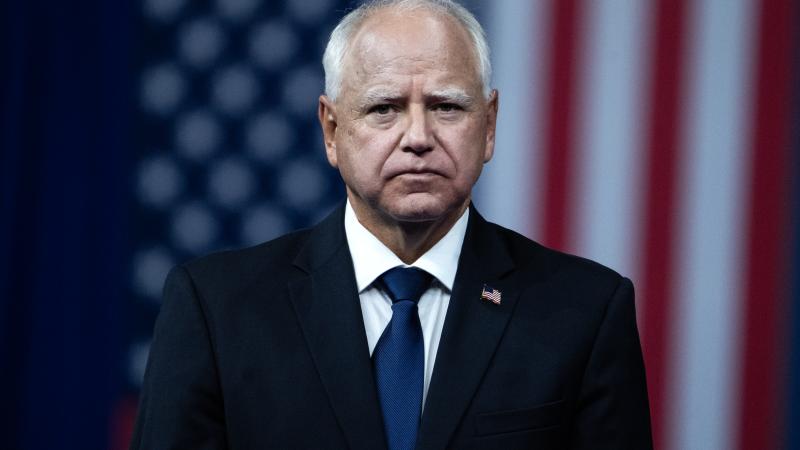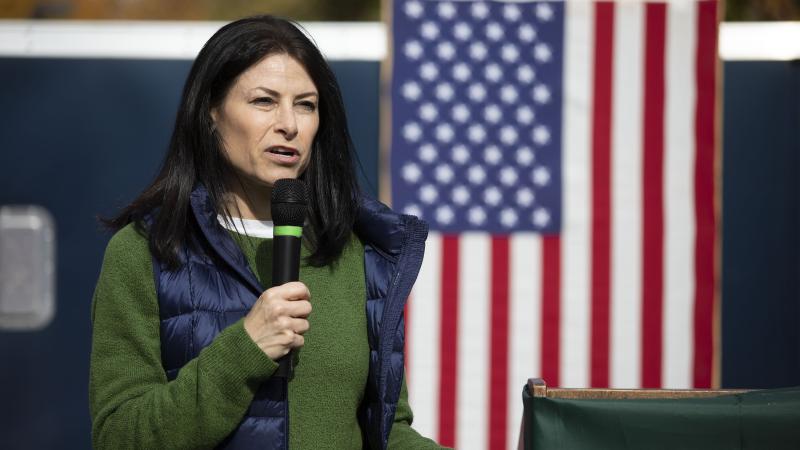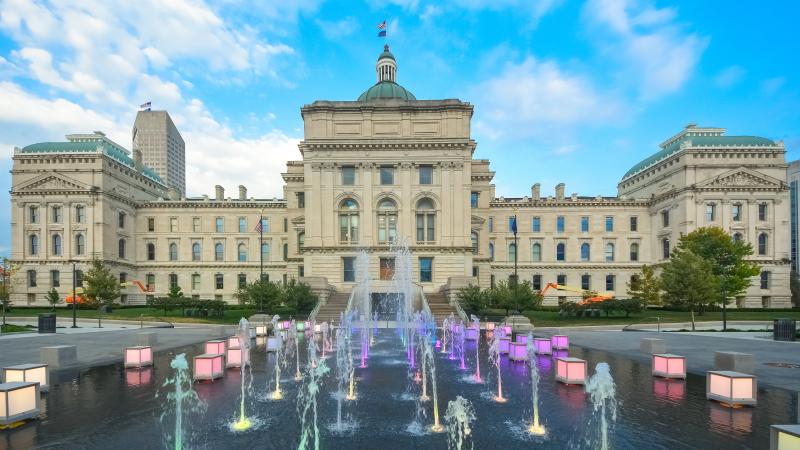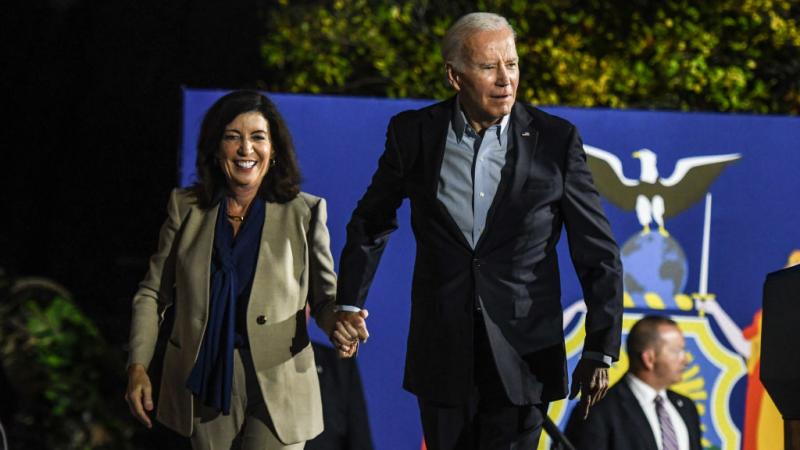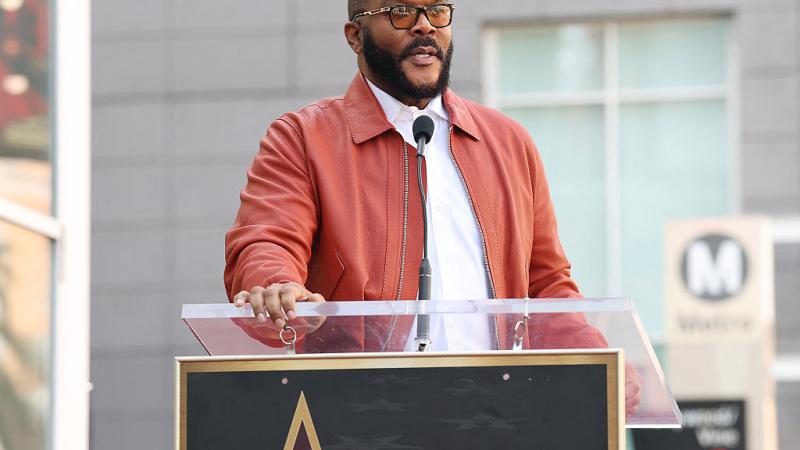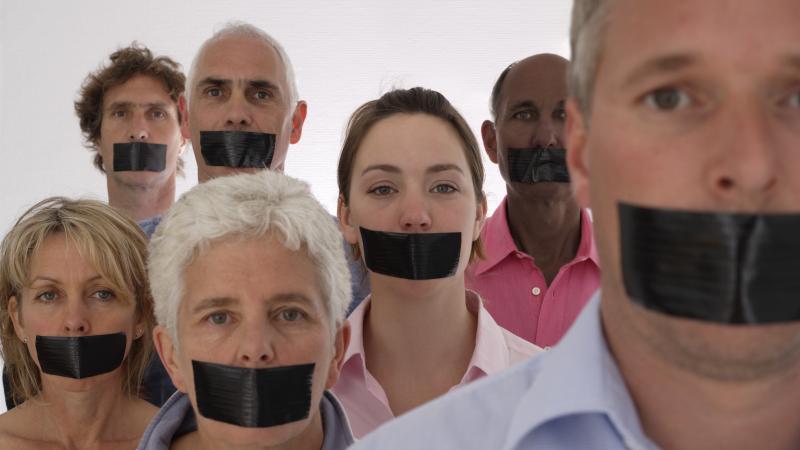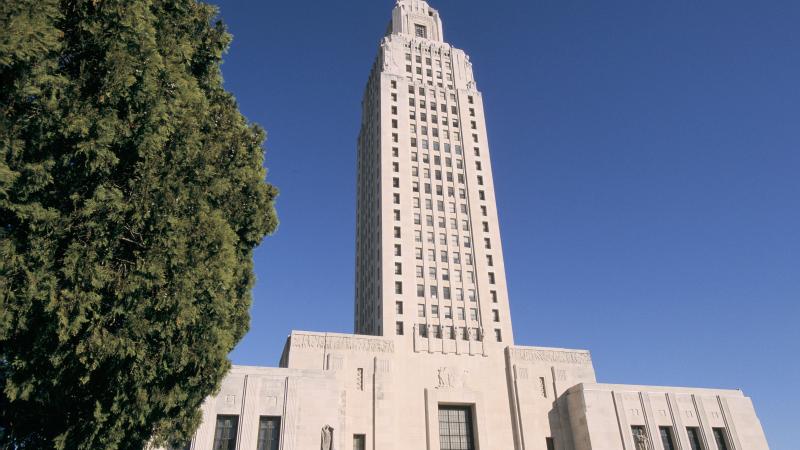Watch: Sub-committee ranking member says he doesn't think antitrust laws need to change
Facebook, Google, Apple, and Amazon CEOs testify before Congress
Four top tech CEOs, representing Apple, Google, Amazon, and Facebook, on Wednesday testified remotely before a House subcommittee on antitrust. The hearing caps off a yearlong investigation by the Judiciary subcommittee into business practices of Big Tech firms in the United States.
Throughout the hearing, Amazon and Facebook CEOs, Jeff Bezos and Mark Zuckerberg, respectively, were met with particular scrutiny by the committee members.
Zuckerberg was grilled over his company's free speech policy and how it decides which posts to target for removal from the platform, and its acquisition of Instagram, which some members of the committee viewed as a monopolistic effort.
Bezos was confronted by committee members over multiple accounts presented to them in the last year of small third-party sellers who had encountered significant issues with Amazon's treatment of their products and ability to sell them on the massive e-commerce site.
The issues ranged from being blacklisted by Amazon without explanation, to having product designs and models directly lifted from a seller to be copied, manufactured, and sold under the Amazon label.
Google CEO Sundar Pichai was largely noncommittal in his answers to committee members. Multiple members addressed concerns that the largest company in the world has become a gateway to the internet, and regularly abuses that power by deciding which companies and websites to favor in its search engine.
Questioning
Congresswoman Pramila Jayapal (D-Washington) laid into Mark Zuckerberg for his company's aggressive business strategy when it comes to competing products. She mentioned, specifically, exchanges that took place between Zuckerberg and the founders of Instagram and Snapchat, two companies that Facebook attempted to purchase, wherein Zuckerberg told the founders that his company was planning to build and incorporate products similar to theirs.
Jayapal views this behavior as monopolistic. Zuckerberg did not agree with the premise of the congresswoman's statement, saying that these were space where Facebook was striving to compete, and his interactions with the founders were essentially part of the standard business landscape.
Georgia Democratic Rep. Lucy McBath told Amazon CEO Jeff Bezos the story of a bookseller whose business was "systematically blocked" by Amazon.
"We were never given a reason, Amazon didn't even provide us with a notice of why we were being restricted," said the woman via recording played by the congresswoman.
Bezos appeared remorseful as he said this story was not reflective Amazon's behavior on the whole. He expressed a desire to hear from the woman first-hand and said "I do not think that's systematically going on. Third-party sellers in aggregate are doing extremely well on Amazon."
After two hours of questioning, congresswoman Pramila Jayapal (D-Washington) grilled Amazon's CEO on the data access it has as compared to the third-party sellers whose products the site hosts.
Bezos did not completely deny that Amazon uses data to compete with smaller third-party sellers.
"What I can tell you is we have a policy against using seller-specific data to aid our private label business but I can’t guarantee that policy has never been violated,” Bezos said. "I'm very proud of what we've done for third-party sellers on this platform."
Nearly one and a half hours into the highly anticipated hearing, the congressional panel has failed to ask Amazon CEO Jeff Bezos a single question.
Zuckerberg was asked Facebook's acquisition of Instagram.
He told the committee that he always viewed Instagram as a competitor and complement to his company. He also testified that at the time of Facebook's acquisition the general public did not view Instagram as a meaningful social network.
Zuckerberg told Nadler that the acquisition of Instagram has done wildly well, but that was not a guarantee at the time of the merger. "I think of it as an American success story," said Zuckerberg, who also cited the FTC's approval of the deal, at the time.
Ranking subcommittee member Jim Sensenbrenner, a Republican from Wisconsin who is retiring after this congressional term, directed his questions toward Zuckerberg.
He asked whether Facebook filtered out political viewpoints, such as temporarily suspending Donald Trump Jr.'s account after he recently posted a video claiming that the drug Hydroxychloroquine was an effective treatment for the novel coronavirus.
Zuckerberg told Sensenbrenner that in general he agreed that his site should not monitor the political speech of others, but Facebook's community guidelines allow and require them to remove any posts that "could cause imminent risk of harm," a category that Zuckerberg argued Don Jr.'s post fell into.
Opening
Cicilline (D-Rhode Island) began the hearing by discussing the role these four giant tech companies have come to hold in the American economy.
“Because these companies are so central to our modern life, their business practices and decisions have an outsized effect on our economy and our democracy. Any single action by any one of these companies can affect hundreds of millions of us in profound and lasting ways,” said the congressman.
Ranking member of the full Judiciary Committee, Jim Jordan (R-Ohio) began the hearing by going after the censorship of conservatives by Big Tech.
"I'll cut to the chase, Big Tech is out to get conservatives," he said.
During his opening statement, Amazon CEO Jeff Bezos, who is made his first appearance before Congress said, "Let me close by saying that I believe Amazon should be scrutinized. We should scrutinize all large institutions, whether they’re companies, government agencies, or non-profits. Our responsibility is to make sure we pass such scrutiny with flying colors."
Facebook CEO Mark Zuckerberg name checked his competitors during his opening statement. He spoke about Apple's imessage platform, Amazon's acquisition of Whole Foods. He said that his company competes with Amazon and Google in the advertising sphere.
Background
The House Judiciary subcommittee on antitrust has spent the last year reviewing more than one million internal documents from the companies, speaking with mid-tier executives from each tech giant, and consulting legal advisors.
Cicilline referred to the four companies as modern monopolies, though breaking them up appears unlikely.
Google is currently appealing a $2.7 billion fine from European regulators, who concluded that the company manipulated its search engine to create an edge over other e-commerce sites. Attorneys general from 50 states are also investigating the company for its online advertising practices.
All four companies represented Wednesday are being investigated in the United States.

